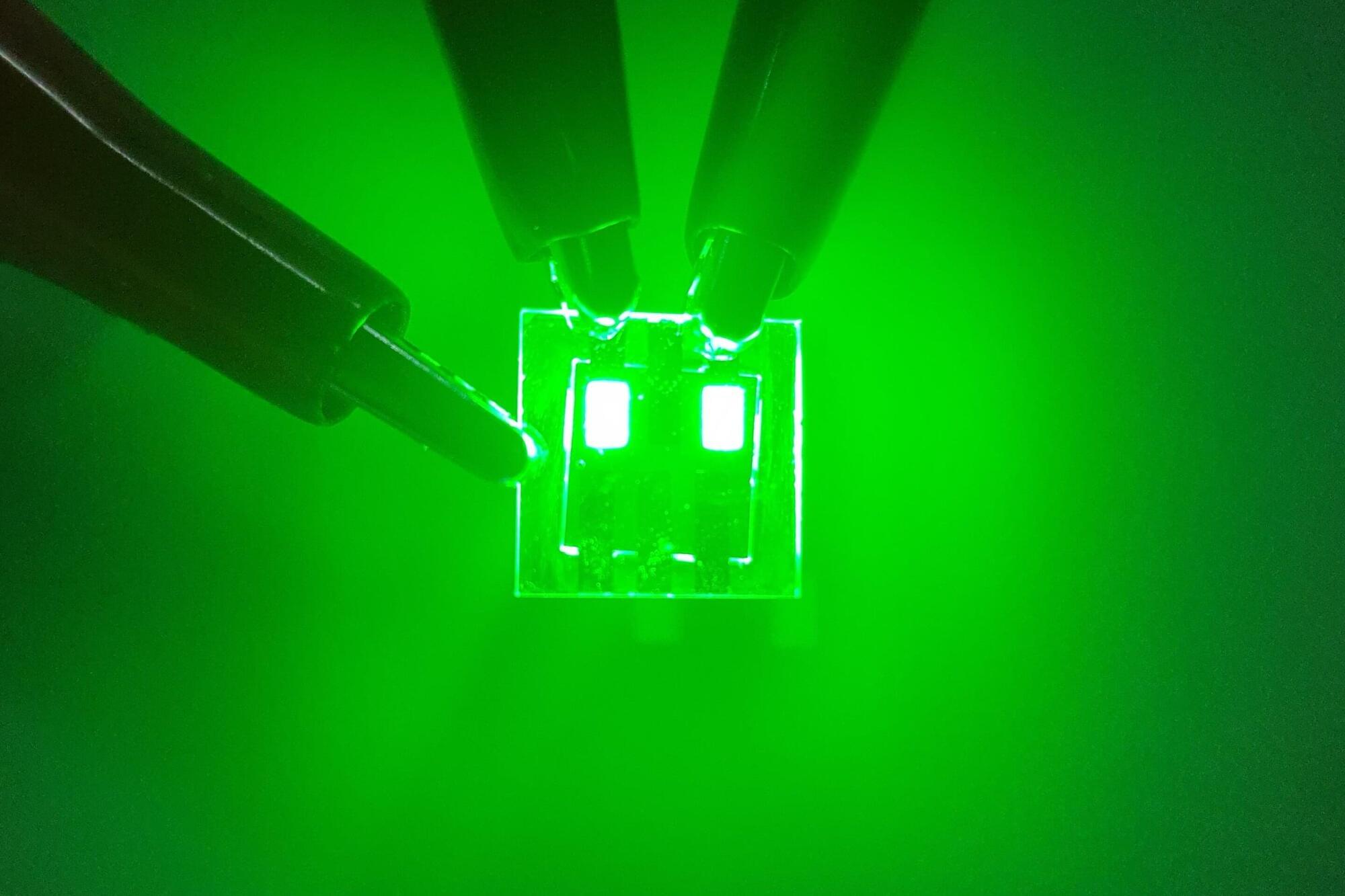Researchers at the Hong Kong University of Science and Technology (HKUST) School of Engineering have cracked a major challenge in display technology by inventing the world’s brightest and most energy efficient quantum rod LEDs (QRLEDs). These next-generation QRLEDs feature optimized deep green emission at the top of the color triangle, enabling displays with unprecedented color purity and a maximized color gamut.
Boasting a longer lifespan and triple the brightness of previous models, these cutting-edge light sources deliver energy-efficient, ultra-vivid visuals for smartphones, televisions, and AR/VR devices while further enhancing color performance.
Light-emitting diodes (LEDs) have been widely used in electronic products for decades. Recent advancements in quantum materials have given rise to quantum dot LEDs (QLEDs) and QRLEDs. Both offer narrow emission bandwidths and high color purity, surpassing traditional LEDs. Among these, QRLEDs excel with higher light outcoupling efficiency.









